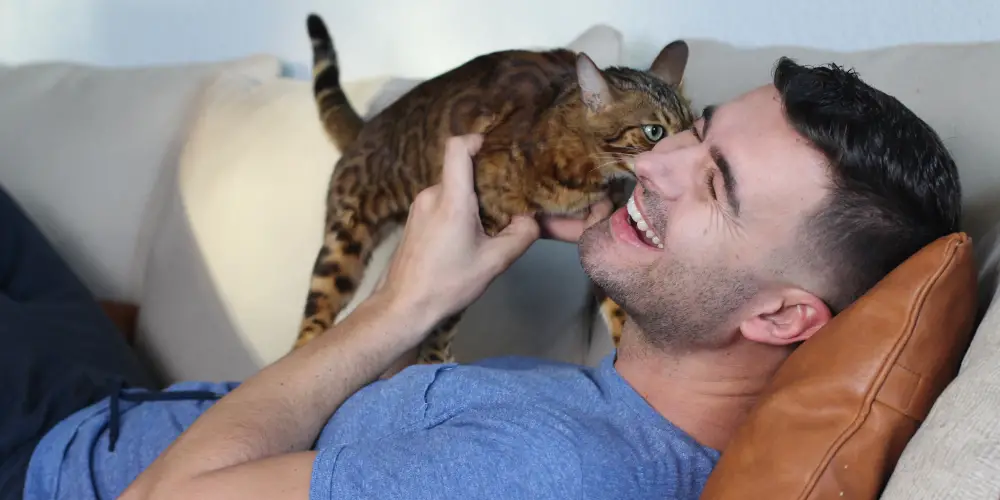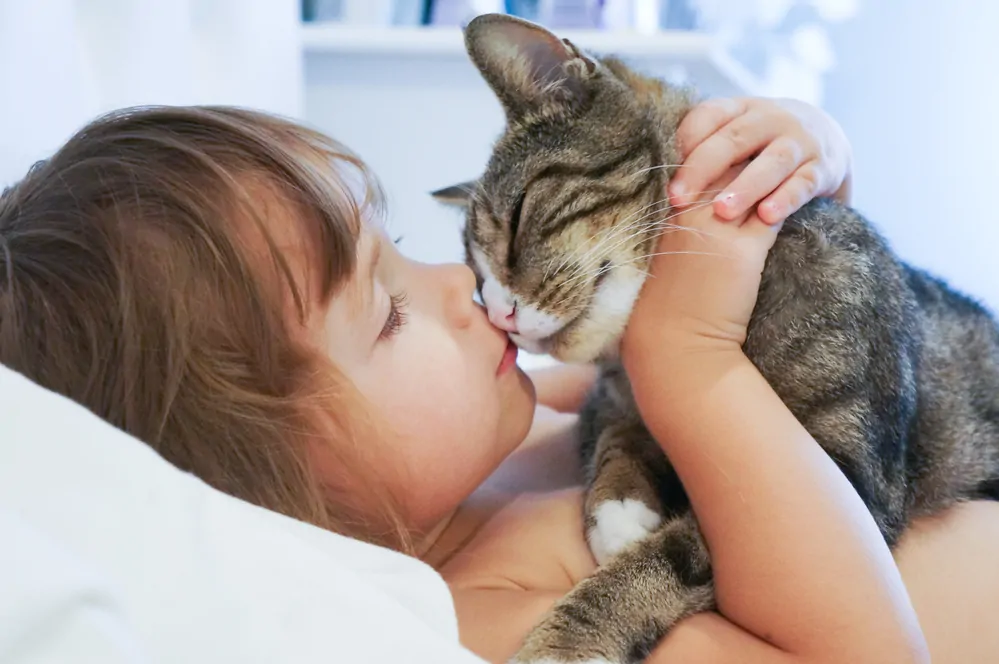Cats and kittens tend to do things that we’d find, well, a bit strange. Among those strange things they like to do, is nibble on us every once in a while. Some cats prefer to give attention to our ears.
Cats nibble on ears for different reasons depending on their age. A younger cat might associate your earlobe with the potential for play- particularly if you wear earrings. Older cats might seek some earwax or, on a warm day, some sweat. It’s an affectionate gesture overall and isn’t intended to hurt.
Why is My Kitten Nibbling on My Ear?

Kittens can make anything a target; sometimes, it decides that our ears are as good of an option as any. A very young kitten may attach to your earlobe and begin to try suckling, as it might associate it with its mother’s nipple.
A slightly older kitten might have something completely different in mind, and that would be using your ear as something to play with. If you are the type to wear dangling earrings throughout the day, your kitten will take notice and try to grab at them or nibble on them at the first opportunity.
Even if you no longer have them in, say, at bedtime. The kitten has already associated your ear as a potential for play. It might nibble on your ear, wondering where that flashy dangling object went that it’s been wanting to play with all day.
Even without earrings, our lobes are a good target and probably something that kittens find interesting. It might be funny at first, but it might get kind of annoying over time if you allow your kitten to sleep with you in bed.
To help prevent your kitten from nibbling on your ears, try to give it some special attention before bed. Toss around some toys and try to tucker it out a little. You can also try leaving a couple of small toys on the bed in hopes that it nibbles on them rather than your ears.
Most of the time, this behavior will decrease as the kitten matures into adulthood. At least their kitten-like behavioral reasoning changes, but adult cats have a whole other set of reasons to nibble on your ears.
Why an Adult Cat Nibbles on Ears

For some cats, it’s all about the earwax. It doesn’t make any difference if your ears are immaculately clean or not.
Earwax has a particular scent that cats can pick up on. It’s a scent that escapes us but is strong enough for a cat to associate as our own. Evidently, we’ve all got a unique earwax scent.
When a cat nibbles on or licks your ears, it’s taking that scent from your ear, and spreading its scent on you. The cat will commonly begin licking or cleaning itself, spreading your scent upon its fur.
They do this for the benefit of other cats, so the other cats smell you and it on you. As if to say to other cats or animals competing for your attention, “Back off, this is my human!”
As petty as that might sound, it’s important to your cat.
How to Make a Cat Stop Nibbling on Your Ears
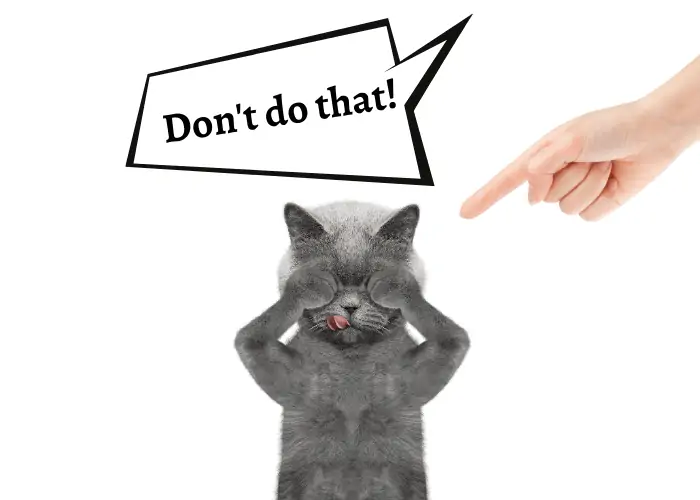
Some people wouldn’t think of doing anything to stop this behavior, as they find it a cute or amusing slice of weirdness performed by their cat. However, some cats or kittens can be a bit more brutal than others, making this otherwise cute behavior annoying.
Folks who take issue with this behavior commonly awake from a sound sleep due to the needle-like teeth nibbling on their ear, accompanied by purring that is echoing through their eardrums.
Some people claim to be woken up several times a night by their cats messing around with their ears. This can quickly become a problem when you’ve got to wake up at a certain time for work.
The simplest (and most obvious) way to make a cat stop this behavior is to keep them out of the bedroom. However, not everyone has that option.
People who live in a one-room apartment, for example. Or, you might not want the cat to rule the roost outside the bedroom for whatever reason and would rather keep it in the bedroom with you.
Deterring Kittens from Ear Nibbling
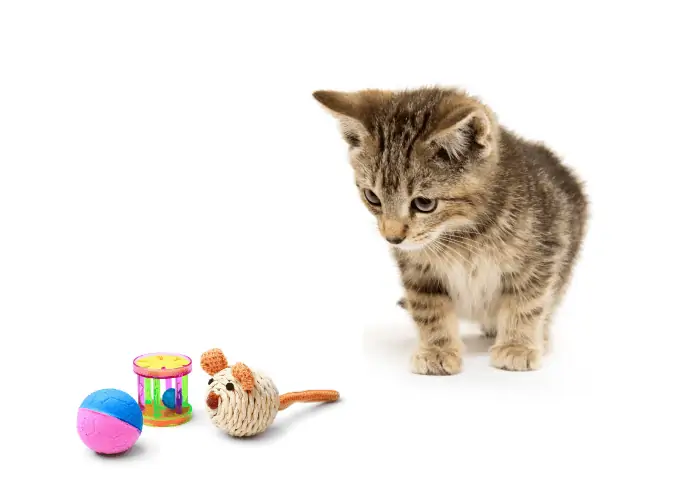
The best deterrent is to offer it something different to focus its attention on. As stated above for kittens, toys might do the trick.
Giving the little one plenty of exercise well before bedtime will help you to settle in, and a good warm place to curl up and sleep that’s near you (below your head) will eventually help as well.
Deterring Adult Cats from Ear Nibbling

When it comes to young adult or adult cats, it might take more on your part to prevent it from messing about with your ears. One idea is to use a wrap-around pillow that cradles your neck and perhaps hides your ears.
A headband of sorts might do the trick as well, as long as it’s wide enough to cover up your ears. Another option is to put something that will offend your cat’s senses on your ears. Bitter apple is said to have some effect.
However, when it comes to coating your ears with things that might offend your cat’s senses, keep in mind that the cat might double down and try to work all that much harder to remove it from your ears. Plus, depending on what you use and how you use it, it can get messy.
Final Thoughts
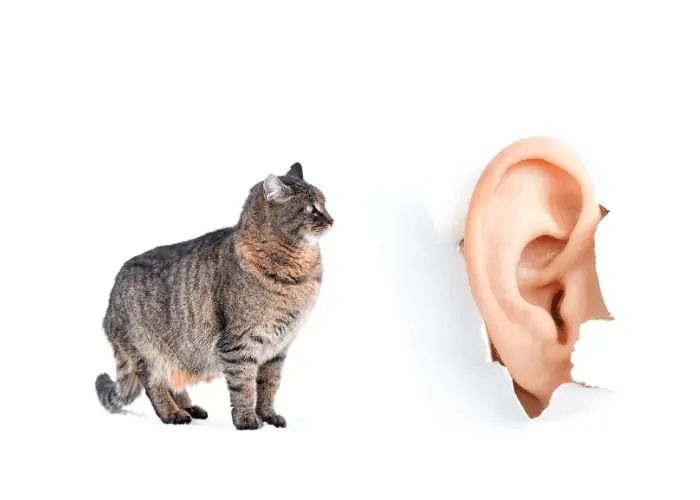
Whether it’s a kitten, young cat, or a fully grown adult, your cat is nibbling your ear as a sign of affection. They do similar things to the ears of other cats and don’t do it to be annoying, but endearing.
I know it may not seem that way, especially if the cat is the type to behave borderline aggressively about ear nibbling. They’re just trying to share with you what they would be sharing with other cats that they consider to be family and enjoy being with.
It’s tough to try and keep cats from doing cat things. But through consistent deterrence and trying out a couple of the tips above, your cat will stop doing it in time.
